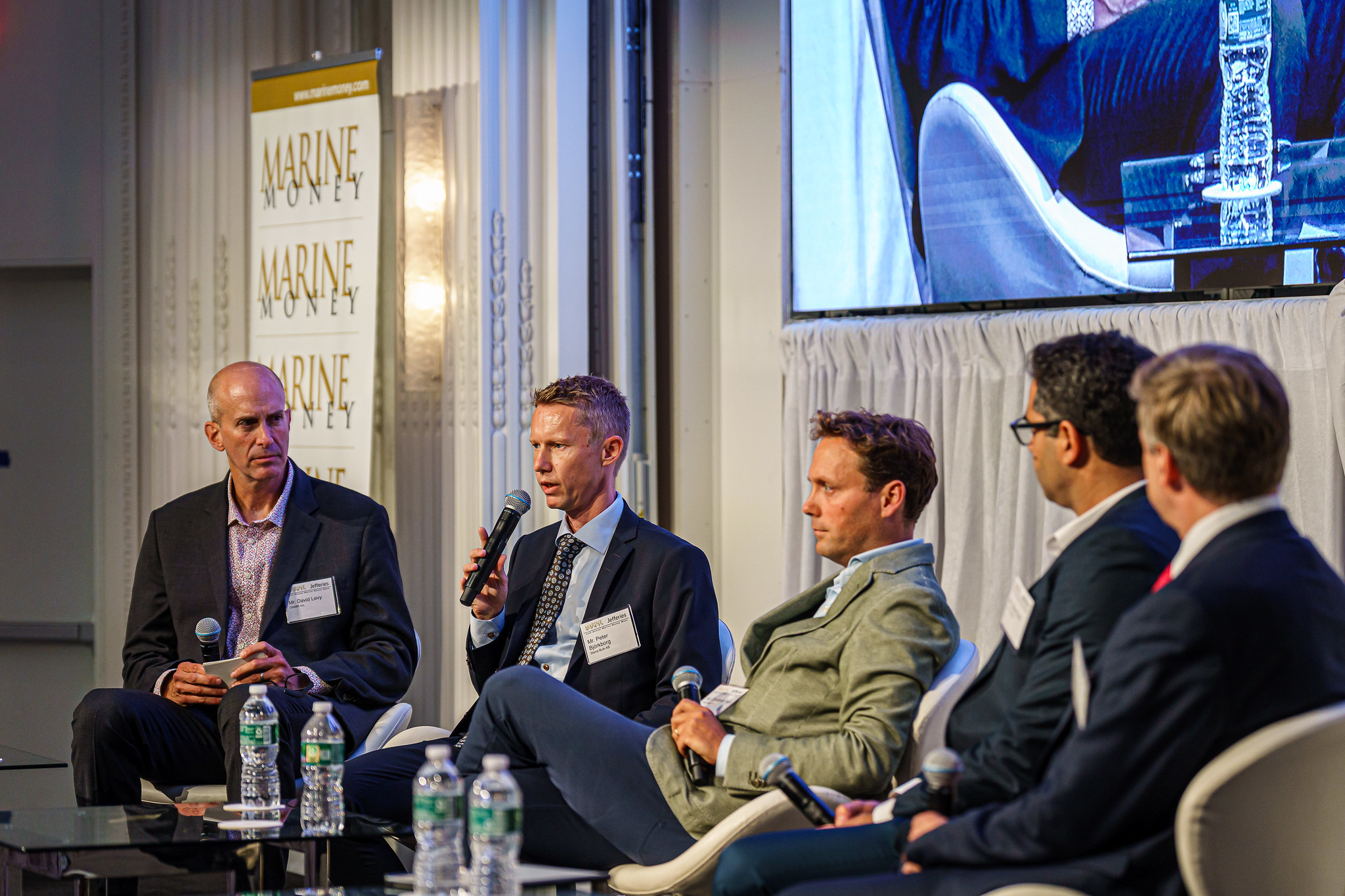
I’ve been to many conferences in my career for many different industries. I’ve attended as a guest, as a paid participant, as someone who worked a trade show booth, and as a moderator. Generally, the value of the conference is found in the people you meet, whether in meetings you’ve scheduled or the people you run into in between sessions, on the exhibition floor, or while getting coffee. This year’s Marine Money Week 2022 in New York City was no different. It was an exciting few days, during which we met lots of people both in meetings and in the halls of the new refurbished Pierre Hotel.
What was very different this time, however, was the quality of the actual panels themselves. From the opening discussion on “Shipping Markets Outlook” to the end, the panels were consistently compelling. Nearly every presentation provided an interesting insight about shipping that you really couldn’t get anywhere else.
And there was one surprise for me, but I’ll get to that later.
Watching the various finance panels, I got the distinct feeling that I missed the boat on the opportunity to invest in the global shipping industry when it was at the bottom a few years ago. There were a lot of charts that showed significant upside returns over the last several years, except for the crude oil tanker market, which has struggled. It would appear, however, that their day is coming soon, that is if the predictions of the “Crude Oil Tankers” panel are to be believed.
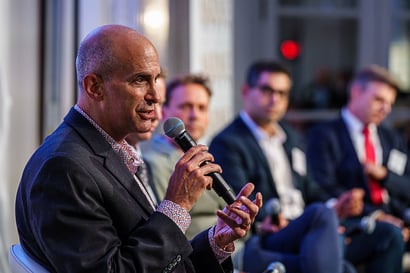
I moderated a panel called “Using Technology to Meet Corporate ESG Goals” which included including the following participants: Osher Perry, Founder & CEO, ShipIn Systems, Christiaan Nijst, Director & Co-Founder, Value Maritime, Peter Björkborg, Manager, Sustainability & Transformation, Stena Bulk and, Matthias Ritters, Managing Director, OSM Thome Ship Management. The panel went well; based on some recent press coverage, others found the panel insightful as well.
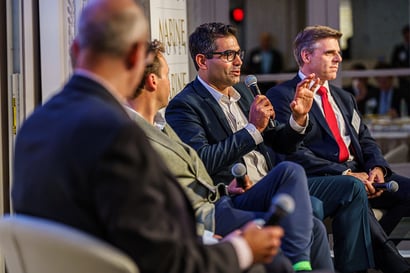
The technologists on the panel described how their particular technologies drive value to the industry. Osher focused on how ShipIn Systems addresses the safety risks associated with the fact that “ships are getting bigger, the number of crew on board is getting smaller, [thus] the challenges and the number of tasks they face on board are increasing.”
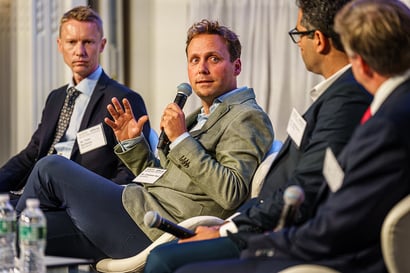
Christiaan described how Value Maritime has been able to translate “land-based technology …into a product that can that has a business case to earn back its investment within two years but also improves the CO2 footprint up to 40%.”
Our panelists from the shipping side also shared some great insights.

Peter Bjorkborg noted how the adoption of “E”-related (environment) “technology will drive decarbonisation but that decarbonisation can also drive technology adoption.”
Mathias Ritters noted that “shipping has always been a data driven industry, and what we are seeing now is that vessels are connected.
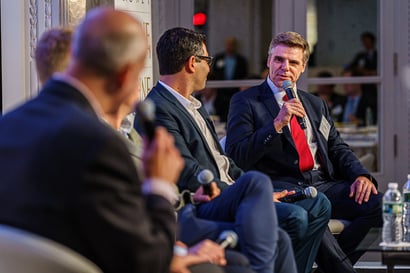
We have the Internet of Things, we have sensors which are affordable, so these are providing us with a lot of data, data which can be analyzed. These data support the adoption of new technologies… but it's not only the hardware it's also the software solutions which can help us find improvements in all the three elements, E, S & G.”
To watch the entire panel (~30min), click here.
The two panels in particular were interesting to me. One was a discussion of leader ship “Leadership, Strategy & Tactics in a Changing Market” that included John Wobensmith, CEO, Genco Shipping & Trading, Lois Zabrocky, CEO, International Seaways, Søren Meyer, CEO, ZeroNorth, Anil F. Sharma, Founder & CEO, GMS DMCC and Jerry Kalogiratos, CEO, Capital Product Partners L.P.
One thing that each of the shipping companies focused on is the need to be good corporate stewards of the capital that they manage, whether from investors or shareholders. The decisions that each of these leaders have made reveal well thought out and responsible policies on capital management whether using stringent metrics of IRR or returning capital to shareholders via buyback.
The CEO of ZeroNorth had a slightly different take on capital stewardship. Having just raised $50 million in growth equity funds, his response to the question about how his firm was managing his funds was to "I don’t know if we are good stewards of our capital, but at least we use it." As the leader of a software company, I disagree with my colleague’s response. Indeed, once you raise money it is your job to spend to further your company goals, yet you must do so responsibly. At OrbitMI, we feel an obligation not to just "use" capital simply because we have it but to use it in smart and efficient ways. In other words, even young companies must be good stewards of investor capital.
Additionally, we try to reflect our customers orientation towards staffing. We run a lean shop at OrbitMI, which seems fitting for a number of reasons. First, a lean staff breeds a hungry culture. We are a young company and want to maintain a entrepreneurial energy, knowing that every day we must prove value to ourselves, our partners, our investors, and our customers. Second, as hinted above by Osher Perry form ShipIn Systems, our customers move ships around the world with very valuable cargoes with relatively small crews. If you can move VLCC across the globe with a crew of fewer than 30 people, then it seems reasonable for a software company to operate as leanly as they do. Our staff has grown over the last few years as well but we’re far from bloated.
Now here’s he surprising part for me. I was emotionally moved by one of the sessions.
During an interview entitled “Adapting & Investing in a Changing World,” Andreas Sohmen-Pao, Executive Chairman, BW Group. Andreas spoke eloquently about his business but also about the uncomfortable irony that shipping’s recent fortunes have come at the expense of great misfortune everywhere. He put in stark contrast the sanguine outlook for the commercial outlook of shipping over the next couple of years compared to the underlying reasons and disruptions leading to it including the ongoing disruption from the pandemic and of course the Russian invasion of Ukraine. “I’m very positive about the shipping outlook and very worried about the world outlook,” Sohmen-Pao said. His sobering perspective gave me a lot to think about.
What Andreas did talk about, and what was in the atmosphere through the conference was the meaningful theme of decarbonisation. Nearly every panel addressed the challenge of meeting the industry’s decarbonisation goals. This focus was quite inspiring, and a welcome anodyne to the world at large. In the course of a few short years, we’ve gone from paying lip service to IMO 2020 to now a more sincere and meaningful discussion regarding 2023 and CII. Will shipping achieve its goals? According to this recent report, no. But it won’t be for lack of trying.
And that’s one of the really gratifying things about working for OrbitMI. Since we started, Orbit has been making a difference in our clients’ businesses, in particular reducing CO2 emissions.
If you’d like more information about how OrbitMI can help you meet your ESG goals, contact us here.
All photos courtery of Marine Money/David Butler Photography
These Stories on Decarbonisation